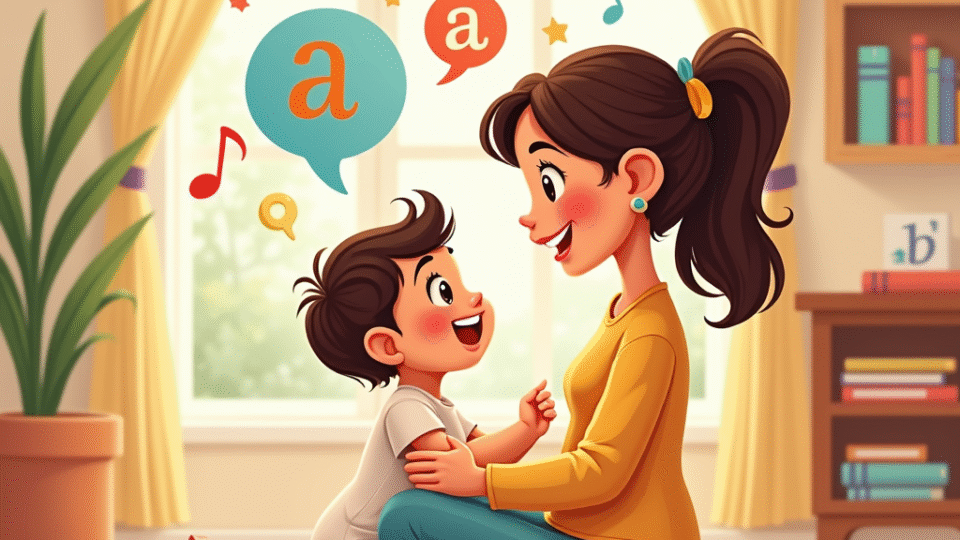
How Do Infants Learn Language? My Baby’s Beautiful Journey From Sounds to Words
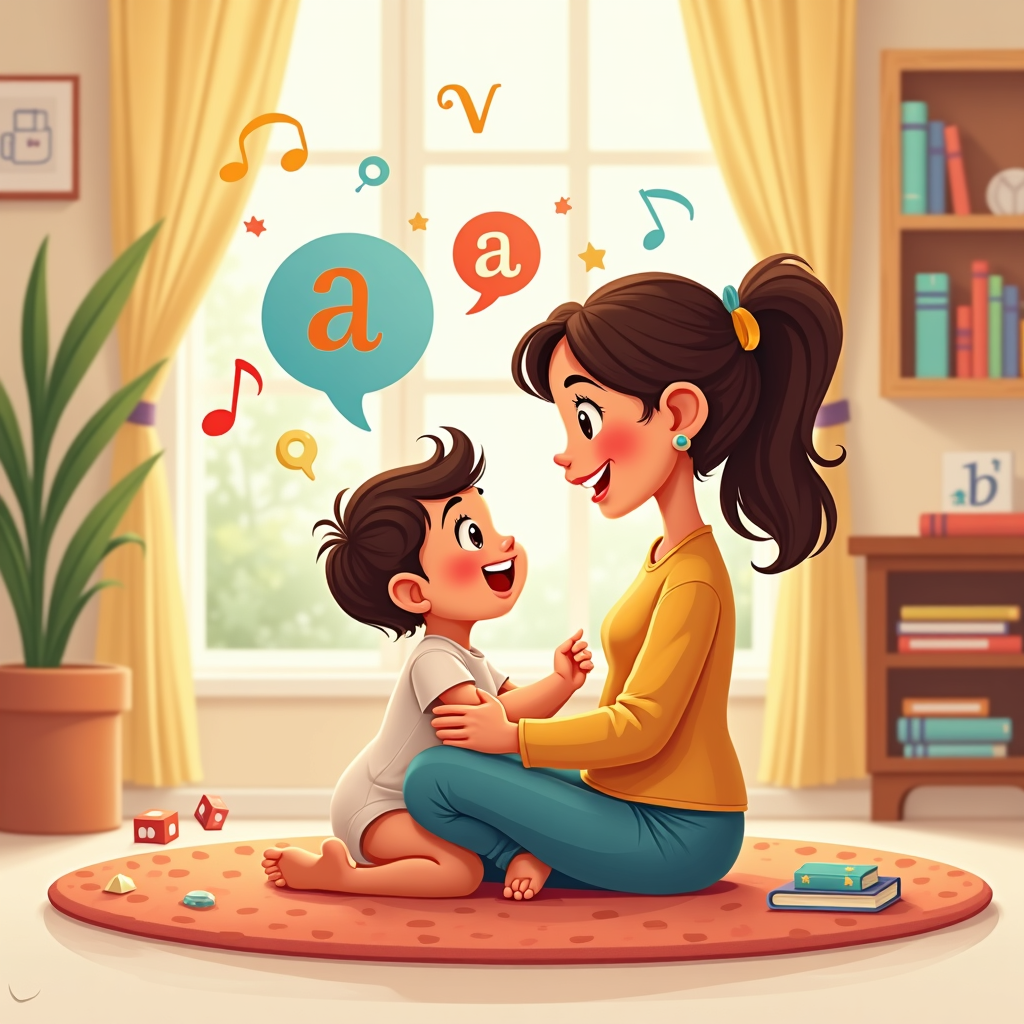
I can still hear it like it was yesterday—my daughter’s very first coo. She was only a few weeks old, lying on her playmat, when she looked up at me and made the tiniest “oooh.” I froze. It wasn’t a cry. It wasn’t a fuss. It was… something else. My heart just melted. I bent down and whispered, “Hi, my love.” To my surprise, she cooed again, louder this time, as if answering me.
That tiny exchange changed everything for me. It was the moment I realised: she was already learning to talk.
At that time, I thought babies just start speaking one day out of nowhere. I had no idea that infant language development starts from the very first days of life. Looking back now, I see how beautifully her brain was working even before her first word.
How Do Infants Learn Language?
Babies are born with an incredible gift — the ability to learn any language in the world. Even in the womb, they’re already listening to your voice and the rhythm of your speech. So by the time they’re born, they know you.
From those early days, their little brains are constantly connecting sounds to meaning. Every smile, coo, and sing-song word you give them is shaping their language development in infancy.
Fun fact: At birth, babies can hear all the sounds (phonemes) from all the world’s languages. By around 9 months, their brains focus on the sounds they hear most at home. That’s when they start to specialise in their own language and prepare to say their first words.
What’s Happening in Their Brain
I used to imagine my baby’s brain like a blank slate, but it’s really more like a fireworks show.
Every time I talked, sang, or even whispered to her, little sparks of activity lit up areas of her brain called Broca’s area (for speech) and Wernicke’s area (for understanding words).
This is what makes newborn language development so special — their brains are building millions of connections every second. And it happens fastest when they hear loving, real human voices.
So yes — all those random chats I had while folding laundry or making tea (“We’re stirring the teaaa. It smells sooo yummy!”) were actually helping her brain develop language.
Milestones in Infant Language Development (0–12 months)
Watching her go through these stages was like watching a miracle unfold:
0–2 months: Only cries and little grunts — her way to say “I need something.”
2–4 months: The sweetest coos started — “oooh” and “ahhh.” My heart!
4–6 months: Babbling began — “ba-ba-ba” and “ma-ma-ma” all day long.
6–9 months: She began combining sounds and using tone, and she turned when I said her name.
9–12 months: Her very first word (“Mama”) came, and I cried happy tears.
Every baby is unique, of course, but this is the usual flow of infants learning to talk.
Which Sounds Do Infants Demonstrate First?
The very first sounds babies make are cries. They’re simple but powerful. Then come coos (long vowel sounds), then babbling (repeated consonant-vowel patterns like “ba-ba” and “da-da”).
When my daughter discovered babbling, she did it all day — while playing, while eating, even while falling asleep. It was like she was rehearsing for the big stage of speech.
When Do Infants Start Responding to Sound?
She started responding to my voice very early. At first she’d just calm down when she heard me, then by 3 months, she would actually turn her head when I spoke.
By 6 months, she recognised her name and smiled every time I said it. These are all signs of infant language learning — they show your baby is starting to link sounds with meaning.
How I Supported Her Language Development
Honestly, I didn’t do anything fancy. I just made our normal days a little more “talky.”
Here’s what helped the most in our home:
Narrating daily routines: “We’re putting on your socks. One… two!”
Reading board books: She mostly chewed them, but she was still listening.
Singing songs: “Twinkle Twinkle” on repeat during diaper changes.
Naming objects: “That’s your spoon. Spoon! Can you hold your spoon?”
Responding to her babbles: When she said “ah-goo,” I’d say “Oh really? Tell me more!”
This is what experts call serve and return — and it’s magical. When she babbled, I replied like it was real conversation. This simple back-and-forth is what builds the foundation for infants talking later on.
What Language Do Babies Think In?
I used to wonder about this at 3 a.m. while rocking her back to sleep. Do babies “think” in words before they can talk?
It turns out, babies don’t think in words yet — they think in feelings, sensations, and sounds. As they hear more language, they start to attach words to those feelings.
So while she wasn’t thinking “I’m hungry” in words, she definitely felt it — and she knew that crying would get my attention. Over time, those feelings became linked with the words I said to her: “milk,” “hungry,” “tummy.”
How Do Babies Think Without Language?
Before they learn words, babies still understand so much. They recognise patterns, remember faces, and know routines. Their brains use images, sounds, and emotions to make sense of the world.
Our words simply give names to what they already know. That’s why infants and language development are so deeply connected to everyday interaction — your words build the bridge between their thoughts and speech.
Why Early Talking Matters So Much
Here’s something I learned that still amazes me:
Babies who hear more words in their first year often have bigger vocabularies when they start school.
That means every silly song I sang, every bedtime story I whispered, and every “Hi baby!” I said while making breakfast was planting seeds for her future language skills.
It reminded me that I don’t have to be perfect. I just have to be present.
Our Favorite Books for Early Language Development
Reading became our happy place. We snuggled together, turned pages slowly, and I’d name every picture:
“Caaat. The cat says meowww!”
She’d giggle and tap the page like she was answering me.
Tips that worked for us:
- Use bright, colorful board books with big pictures.
- Point at pictures while naming them slowly.
- Read the same few books daily — repetition helps memory.
- Use a sing-song parentese tone while reading.
Even five minutes a day made a huge difference.
The Heart of It All: Your Voice
At the end of the day, helping your baby learn to talk doesn’t require expensive toys, classes, or apps.
All they really need is you.
Your voice. Your smiles. Your loving attention.
Every coo, every babble, every wide-eyed stare is your baby’s way of saying, “I’m ready to learn.” And when their first real word finally comes… it will be the sweetest sound you’ve ever heard.
Want to spark your baby’s language skills through stories?
Explore our Toddler Storybooks Collection — specially created to grow your little one’s vocabulary through playful stories.
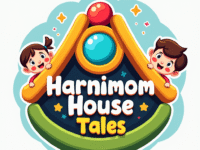





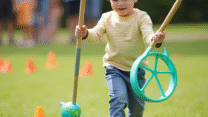
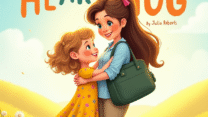



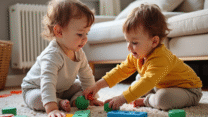

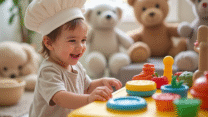
Leave a Reply